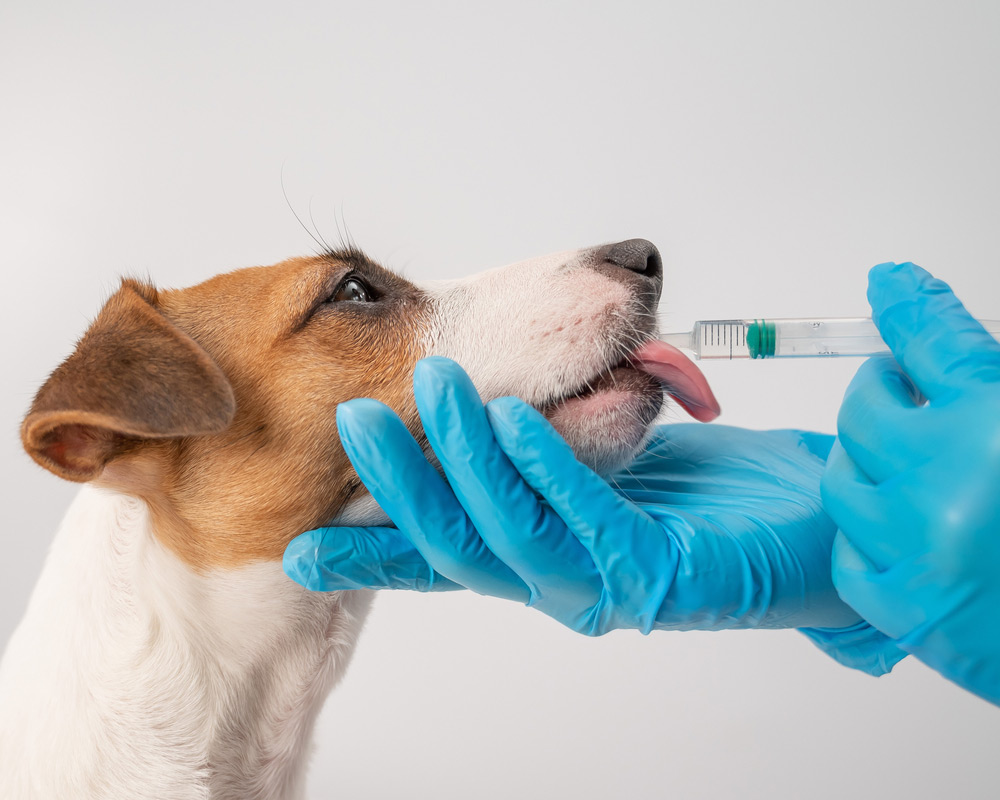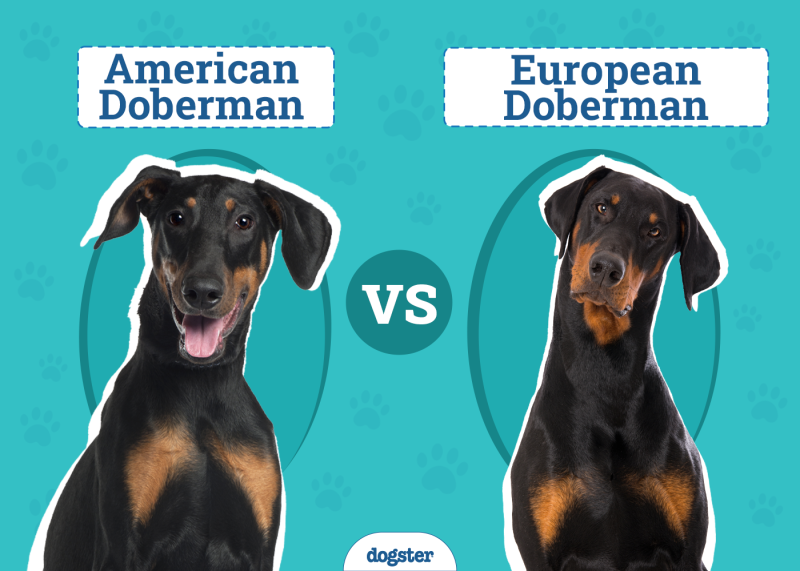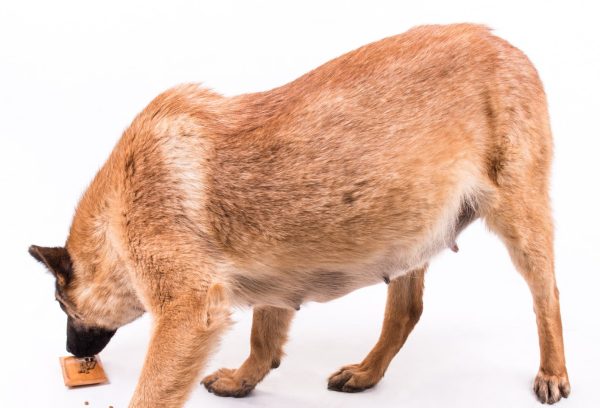In this article
One of the most forbidden of all foods for dogs is none other than chocolate, an indulgent treat for us humans. Chocolate contains theobromine, which is toxic to dogs; the darker the chocolate, the more theobromine it contains, and the more poisonous it will be. So, how severe the signs of chocolate toxicity are will depend on the type and how much chocolate your dog has eaten, as well as how big they are. It’s critical to keep all types of chocolate away from your dog, but if they have accidentally eaten some, then keep the packaging and contact your vet straight away for advice.
If you’re interested in learning a little more about why chocolate is toxic, signs of chocolate poisoning, and tips for a healthier diet, look no further. Scroll down as we explore all that info and more.

Why Can’t Dogs Eat Chocolate?
Chocolate is toxic to dogs primarily because of the theobromine it contains. It also contains a small amount of caffeine. Dogs struggle to metabolize these compounds leading to chocolate toxicity if consumed in large enough amounts. Theobromine affects a dog’s nervous system, cardiovascular system and respiratory system, it also has a diuretic effect.
Not all types of chocolate contain the same amount of theobromine. Cocoa powder and plain or dark chocolate have the highest amounts, milk chocolate has a lower concentration, and white chocolate hardly contains any theobromine.
Let’s look at some signs of chocolate poisoning, which depend on the size of the dog and the amount and type of chocolate that they have eaten. Signs will start to be apparent within a few hours of ingesting the chocolate but it can take as long as 12-24 hours for some signs to appear.
- Panting
- Vomiting
- Diarrhea
- Restlessness and hyperactivity
- Increased thirst and urination
- Tremors and ataxia
- Fast heart rate
- Seizures
Although very rare, the most severe cases of chocolate poisoning can even lead to heart failure, coma and be fatal.
What to Do If Your Dog Eats Chocolate
As soon as you notice your dog ate chocolate, remove it from their reach and immediately call your vet or an emergency resource, like the ASPCA Animal Poison Control Center, for instructions. They will want to know the size of your dog and the type and amount of chocolate that they have eaten, so keep any packaging.
If your dog has eaten a toxic amount of chocolate vets will want to see your dog straight away, otherwise they may ask that you observe your dog for an hour or two before coming in for a visit if they develop any concerning signs. You should not attempt to induce vomiting at home unless under the specific instruction of your vet, this is usually done at the clinic if appropriate.
If you need to speak with a vet but can't get to one, head over to PangoVet. It's our online service where you can talk to a vet online and get the advice you need for your pet — all at an affordable price!
What Is the Treatment for Chocolate Poisoning?
Treatment will depend on the amount of chocolate eaten and when, as well as the severity of any signs that your dog is showing. The vet will likely induce vomiting if the chocolate was eaten recently and may administer activated charcoal to help absorb remaining toxins.
In more serious cases of chocolate poisoning a fluid drip and close monitoring may be needed to support your dog and prevent them becoming dehydrated. Medications might be required to address any neurological signs such as tremors and seizures.
Chocolate ingestion can be very serious for dogs. If you even suspect they’ve eaten chocolate, it’s best to phone your vet for advice straight away. The sooner treatment is given the better, as inducing vomiting and giving activated charcoal can prevent the absorption of theobromine.

Is White Chocolate Dangerous for Dogs?
White chocolate contains hardly any theobromine so toxicity is unlikely. It is mainly a problem to dogs because of its fat and sugar content which can cause digestive upset and pancreatitis. Also be aware that chocolate, including white chocolate, commonly contains other ingredients that are toxic to dogs such as raisins and macadamia nuts.
- Never feed chocolate to your dog and make sure children and visitors know this too.
- Keep chocolate out of reach and stored in a secure area.
- Take special care at festive times such as Easter and Christmas when there is usually a lot of chocolate around!
- Teach your dog the “leave it” command.

Final Thoughts
Chocolate is a huge no-no for our furry friends. If you even suspect that your dog has consumed chocolate, call your vet or a pet poison hotline for immediate assistance. Instead of sharing your chocolate, you can treat your canine companion with some xylitol-free peanut butter, carrots, or plain cooked meats, like chicken.
See Also:
- Long Term Effects of Dogs Eating Chocolate: Our Vet Discusses Concerns
- 15 Creative Dog Easter Basket & Filling Ideas
Featured Image Credit: joanna wnuk, Shutterstock


















